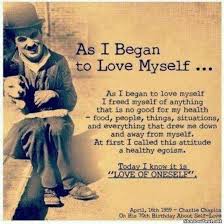
Some believe love to be the most powerful force on the planet. Consequently, many believe love is the best solution to every situation. Fundamentally, that seems true, as long as love of self is kept high on the list of who or what to love. In other words, no, we can’t love others too much, but we can inadequately love ourselves.
The studies outlining the measurable, positive effects of love are extensive, from love shown to orphaned babies and love experienced in faith communities, to love creating bonds that literally carry information.
It is my firm belief that love will eventually prevail. And this notion is being studied scientifically by people like Gregg Braden. Mr. Braden’s work suggests the sign wave of love expands over time. To the contrary, it appears the sign wave of fear contracts with time. One could deduce, then, that love literally will prevail.
But since that extrapolation may not be realized for a while, we’re left wondering how best to love.
Thank goodness, many people were taught and are being taught to love others. And they are doing a remarkable job of that. There are people loving their angry children, people loving their broken parents, people loving their offenders, people loving their enemies. In this light, we can not love too much.
However, my work has shown me that many who were taught to meet the needs of and love others were not as educated in meeting their own needs or truly loving themselves.
Consequently, they have no real reference internally for what it feels like to care for themselves or who they are in the world. Simple things like crispy or regular; soccer or dance; flowers or candy. These basic preferences are often lost on people who were never taught to love self and others.
It’s these basic preferences that healthy children are encouraged to figure out early on. In so doing, they are learning what makes them happy and what doesn’t. And it’s this very fundamental self information that tells children they have a right to like some things and not others. Consequently, these children become adults who enter relationships knowing that they have certain rights in those relationships.
You probably see where this is going. Those adults who never learned what they liked and didn’t like become adults who often enter adult relationships very aware of the needs of others, and very unaware of their own needs. As a result, when they are treated poorly by other adults, they don’t hear and/or acknowledge the inner alarms that naturally sound in us when mistreated.
This absence of awareness of one’s birth rights leaves certain adults vulnerable to the whims and wishes of others. These adults who never learned to know or love themselves are often happy on the outside, but pained on the inside.
The solution: learning to sense and act in alliance with one’s own needs. This doesn’t necessarily mean loving others less. It means loving self more.
*Disclaimer: My Disclaimer contains important information I need to share with you and for you to understand. Please be advised of the following. The information contained on this website, and accompanying blog, including ideas, suggestions, techniques, and other materials, is educational in nature and is provided only as general information and is not medical or psychological advice. Transmission of the information presented on this website is not intended to create and receipt does not constitute any professional relationship between Greg Pacini and the visitor and should not be relied upon as medical, psychological, coaching, or other professional advice of any kind or nature. Nothing you read in this website is meant to diagnose, substitute for, or otherwise replace actual face-to-face professional counseling.
Any information, stories, examples, or testimonials presented on this website do not constitute a warranty, guarantee, or prediction regarding the outcome of an individual using such material contained herein for any particular purpose or issue. While all materials and links and other resources are posted in good faith, the accuracy, validity, effectiveness, completeness, or usefulness of any information herein, as with any publication, cannot be guaranteed. Greg Pacini accepts no responsibility or liability whatsoever for the use or misuse of the information contained on this website, including links to other resources.
By viewing this website you agree to fully release, indemnify, defend and hold harmless Greg Pacini, his heirs, assigns, employees, agents, representatives, consultants and others associated with Greg Pacini from any claim or liability whatsoever and for any damage or injury, personal, emotional, psychological, financial or otherwise, which you may incur arising at any time out of or in relation to your use of the information presented on this website. Greg Pacini strongly advises you seek professional advice as appropriate before making any health decision. If any court of law rules that any part of the Disclaimer is invalid, the Disclaimer stands as if those parts were struck out.
Endorsed by two New York Times bestselling authors.”


